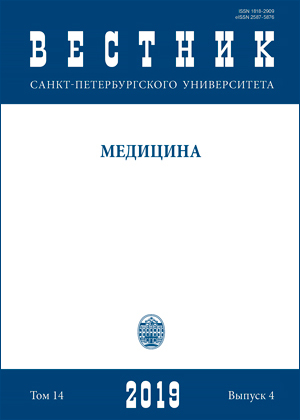Comparison of the effectiveness of various methods of pregnancy loss prevention in women with antiphospholipid syndrome
DOI:
https://doi.org/10.21638/spbu11.2019.430Abstract
Around 10–15% women with recurrent pregnancy loss are diagnosed with antiphospholipid syndrome. In 20–30% women conventional therapy approaches do not lead to desirable outcomes. A possible approach to improve pregnancy outcomes in women with antiphospholipid syndrome is combined use of plasmapheresis and intravenous immunoglobulin in addition to a conventional therapy, which was assessed in this study in comparison with conventional therapy+plasmapheresis only; with conventional therapy+intravenous immunoglobulin only and with conventional therapy only. According to the results, combined use of plasmapheresis with immunomodulating intravenous immunoglobulin and conventional therpapy leads to the most significant antiphospholipid antibodies titer lowering, reduces prevalence of pregnancy complications, such as threatened abortion, mild preeclampsia, placental insufficiency, intrauterine growth restriction and increases prevalence of favourable pregnancy outcomes. It can be assumed that this approach can be considered as the most effective for the treatment of pregnant women with antiphospholipid syndrome for prevention gestational complications and pregnancy loss. antiphospholipid syndrome
Keywords:
antiphospholipid syndrome, antiphospholipid antibodies, recurrent pregnancy loss, intravenous immunoglobulins, plasmapheresis
Downloads
References
References
Downloads
Published
How to Cite
Issue
Section
License
Articles of "Vestnik of Saint Petersburg University. Medicine" are open access distributed under the terms of the License Agreement with Saint Petersburg State University, which permits to the authors unrestricted distribution and self-archiving free of charge.




